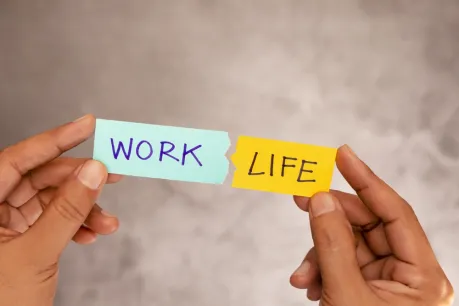Caring for an Adult Child With a Disability: Your Right to Leave From Work

Injured?
If your adult child has a serious health condition and cannot care for their basic needs due to a disability, you may be eligible to take protected leave under the Family and Medical Leave Act (FMLA). This includes situations where your child is 18 or older and requires care because of a qualifying physical or mental impairment.
Let’s start with the basics. If you qualify under the FMLA, you can take up to 12 weeks of unpaid, job-protected leave each year for certain family and medical reasons. During your leave, your employer must maintain your health insurance coverage and guarantee your position, or an equivalent one, when you return to work.
To be eligible for FMLA leave, you must:
- Work for a covered employer
- Have been employed for at least 12 months
- Have worked at least 1,250 hours in the past 12 months
- Work at a location where the employer has at least 50 employees within 75 miles
Once those requirements are met, the FMLA allows you to take leave for several qualifying reasons, including:
- The birth or adoption of a child
- Your own serious health condition
- Caring for a spouse, parent, or child with a serious health condition
- Addressing certain military-related family needs
It’s important to note that the FMLA defines “child” to include adult children in specific circumstances, namely, when they have a disability that prevents them from caring for themselves.
Valid Reasons to Take Leave to Care For An Adult Child
Under the FMLA, you may take leave to care for an adult child—but only if all of the following conditions are met at the time your leave begins:
- The child has a serious health condition.
- The child has a qualifying disability.
- The child is incapable of self-care due to the disability.
- The child requires your care and assistance during that time.
The child’s disability may have existed since childhood or developed later in life. It is not required that the condition be diagnosed before age 18. What matters is the child’s current ability to manage daily tasks and whether your support is needed.
What “Incapable of Self-Care” Really Means
To qualify under the FMLA, being “incapable of self-care” means your adult child cannot perform basic daily tasks or routine adult responsibilities without regular help. This typically involves needing assistance with at least three or more of the following activities:
Personal care tasks:
- Bathing or showering
- Getting dressed
- Grooming and hygiene
- Eating meals
Every day, adult responsibilities:
- Cooking or preparing food
- Cleaning or maintaining a home
- Shopping for groceries or essentials
- Using public transportation
- Managing money or paying bills
- Using a phone or mailing services
If your child requires physical assistance, supervision, or reminders to complete these tasks due to a disability, they may meet the FMLA’s standard for being incapable of self-care.
How the FMLA Defines “Disability”
The FMLA relies on the same definition of disability used under the Americans with Disabilities Act (ADA). This includes both physical and mental conditions that significantly limit one or more major life activities or bodily functions.
Examples of qualifying conditions may include:
- Epilepsy, cancer, or diabetes
- Post-traumatic stress disorder (PTSD) or major depression
- Conditions affecting mobility, memory, breathing, or immune system function
- Chronic illnesses with flare-ups or remission periods, such as multiple sclerosis (MS) or asthma
Even if your child’s symptoms are not present every day, they may still be considered disabled under the law if the condition imposes significant limitations when active.
Examples of Serious Health Conditions
Under the FMLA, a serious health condition generally involves one or more of the following:
- Inpatient care (such as an overnight stay in a hospital or residential facility)
- Ongoing treatment by a health care provider
- Conditions that make your child unable to perform daily routines or attend school or work
The condition doesn’t need to be the cause of your child’s disability, though in many cases, the two are related. What matters is that your child is dealing with both a qualifying disability and a serious health issue at the time you request leave.
What It Means to Be “Needed to Care”
Under the FMLA, you’re considered “needed to care” for your adult child if they require assistance with medical, emotional, or everyday needs. This can include:
- Helping with personal hygiene or basic medical care
- Providing transportation to and from appointments
- Offering emotional support during treatment
- Assisting with daily activities during recovery
FMLA protections don’t only apply to physical care. Emotional and logistical support matters, too.
What Employers Can Ask For
Your employer may request documentation showing your relationship to the adult child. A simple written statement is usually sufficient, there’s no need for formal legal paperwork.
They may also ask for a medical certification confirming the serious health condition. This requirement applies in all FMLA leave requests.
Know your Rights
State laws may offer broader protections. You’re always entitled to the most protective rule that applies.
Retaliation is illegal. Your employer cannot punish you for requesting or using FMLA leave.
If you believe your rights have been violated, you can file a complaint with the U.S. Department of Labor or consider legal action.
Disclaimer: This information is based on fact sheets the DOL provides.
How Morgan & Morgan Can Help
If your FMLA rights have been violated and you need someone with your best interests at heart to review your case for free, please contact Morgan & Morgan immediately. The case evaluation aside, our labor and employment lawyers might also be able to represent you for free.

We've got your back
Injured?
Not sure what to do next?
We'll guide you through everything you need to know.

